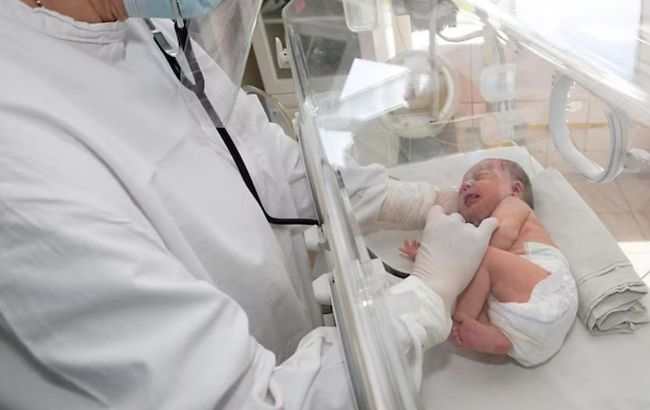Scientists identify threat that claims thousands of infant lives each year
 Photo: Which infection is very dangerous for babies (freepik)
Photo: Which infection is very dangerous for babies (freepik)
A new large-scale study has shocked the world: congenital syphilis, an infection transmitted from mother to child during pregnancy, not only causes severe disabilities but also claims the lives of tens of thousands of newborns every year, the official website of the London School of Hygiene & Tropical Medicine reports.
What is known about study
The British scientists, in collaboration with Brazil's Center for Data and Knowledge Integration for Health, analyzed the medical records of more than eight million Brazilian children. The results of the study are staggering: infants diagnosed with congenital syphilis at birth are six times more likely to be hospitalized within the first five years of life, and during the first month, this risk increases by as much as eleven times!
Syphilis, caused by the bacterium Treponema pallidum, is insidiously transmitted to the fetus through the placenta, inflicting irreversible harm even before birth. The consequences of this infection can be devastating and include:
- Stillbirth and premature birth – a tragic start to life.
- Deafness, blindness, and severe neurological complications that permanently alter quality of life.
- Lifelong skeletal deformities that cause physical suffering.
What is especially alarming is that even timely treatment of the mother during pregnancy is not always a guarantee of protecting the child from harm. According to the World Health Organization (WHO), 700,000 cases of congenital syphilis were recorded in 2022, resulting in tens of thousands of infant deaths. Of particular concern is the global trend of increasing syphilis incidence in both low- and high-income countries, highlighting systemic problems in the field of healthcare.
What about prevention
"Syphilis infections are both preventable and treatable, and yet we continue to see thousands of women and children severely affected by the disease each year," said Dr Enny Da Paixao Cruz.
Her call to action is firm - public health initiatives must be expanded to include not only prenatal testing but also comprehensive preventive measures before pregnancy begins.
Early detection and treatment of syphilis in women before and during pregnancy is critically important to saving the lives and health of their future children.
Professor Maria Yury Ichihara from CIDACS fully supports this view, emphasizing the urgent need to improve screening programs and develop effective strategies for long-term monitoring of children born to mothers with syphilis.
This will help minimize the lasting impact of maternal infection on children's health in the future.
This material is for informational purposes only and should not be used for medical diagnosis or self-treatment. Our goal is to provide readers with accurate information about symptoms, causes, and methods of detecting diseases. RBС-Ukraine is not responsible for any diagnoses that readers may make based on materials from the resource. We do not recommend self-treatment and advise consulting a doctor in case of any health concerns.

